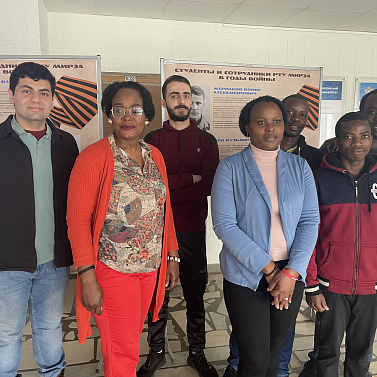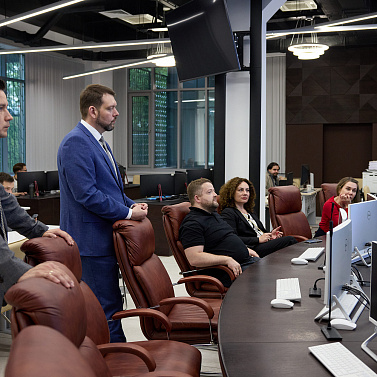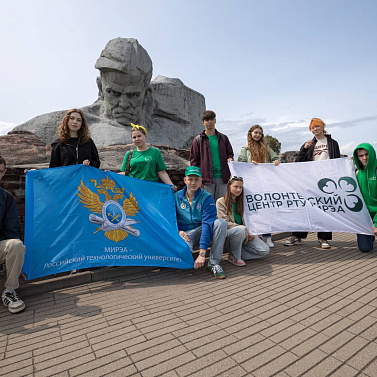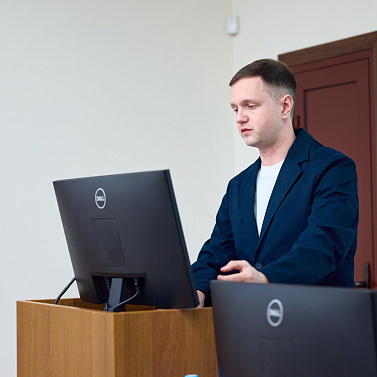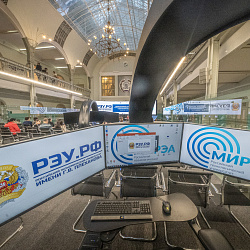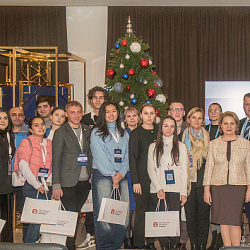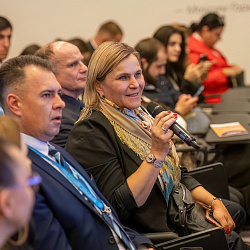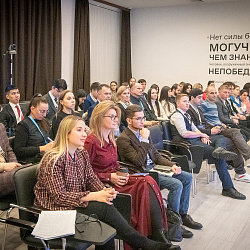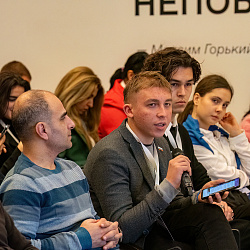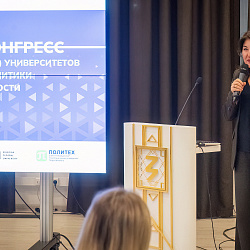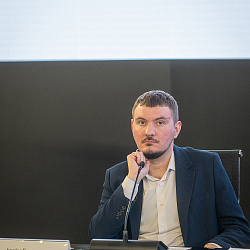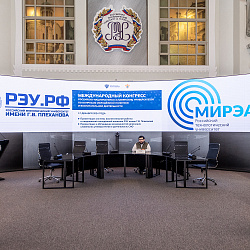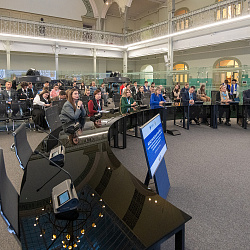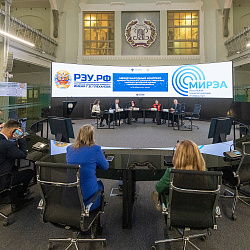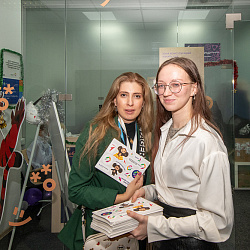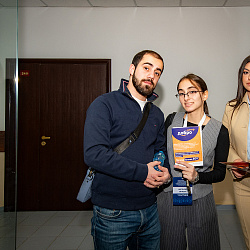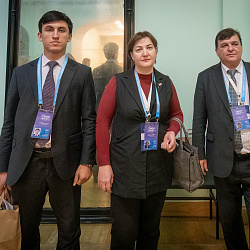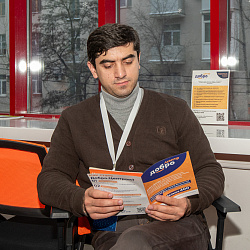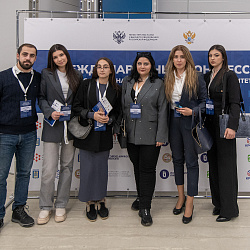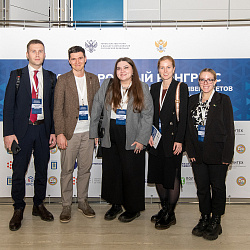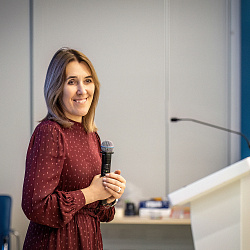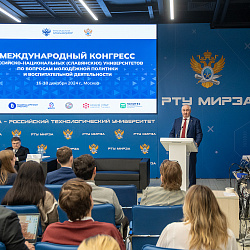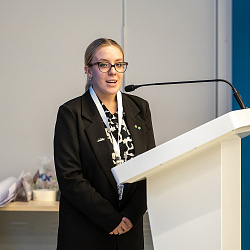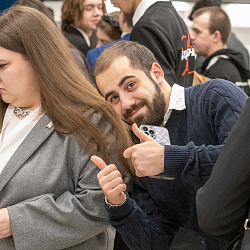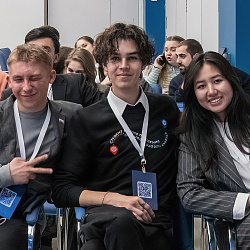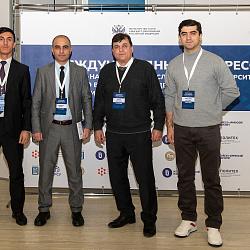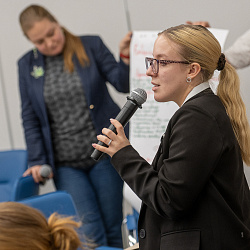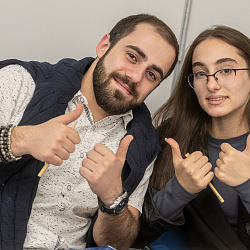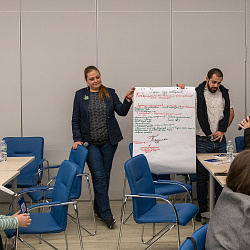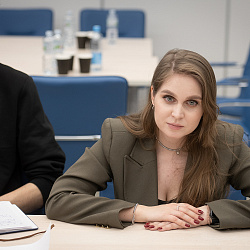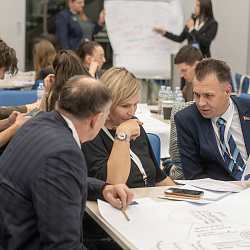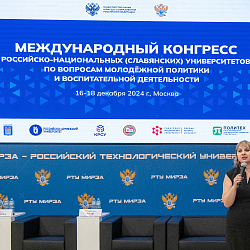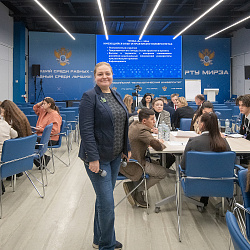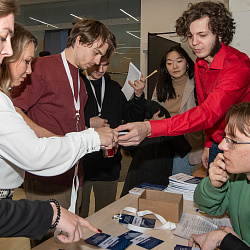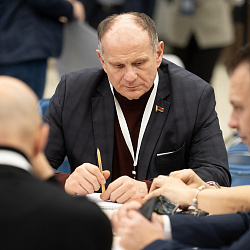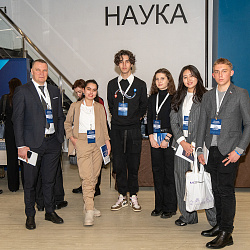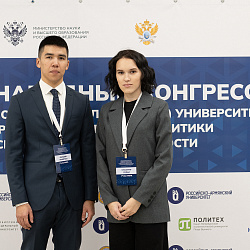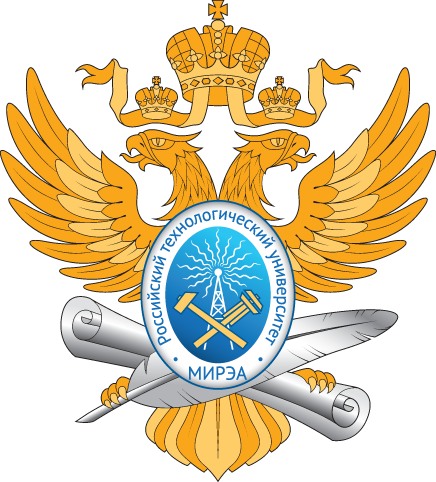RTU MIREA acted as the organizer of the Congress of Russian-national universities on youth policy and educational activities
On December 16, the International Congress of Russian-National (Slavic) Universities on Youth Policy and Educational Activities opened in Moscow. The congress brought together 50 representatives of the rector's and vice-rector's community, heads of educational work departments and leaders of student public associations from the Belarusian-Russian University, the Kyrgyz-Russian Slavic University, the Russian-Armenian (Slavic) University, the Russian-Tajik (Slavic) University, as well as Russian partner universities - Peter the Great St. Petersburg Polytechnic University and the Siberian Federal University. The event was organized by the Ministry of Science and Higher Education of the Russian Federation and RTU MIREA - the basic organization of the CIS member states for work with youth.
On the first working day at the RTU MIREA site, within the framework of the strategic session "Further development of youth policy and educational activities in Slavic universities", the participants discussed the existing experience, practices and projects, as well as modern challenges that Slavic universities face in implementing youth policy and educational activities.
A plenary discussion was held in the format of an open dialogue. It was monitored by Grigory Petushkov, Vice-Rector of RTU MIREA, Chairman of the National Council of Youth and Children's Associations of Russia.
The delegates of the congress were welcomed by Olga Petrova, Deputy Minister of Science and Higher Education of the Russian Federation, and Sergey Malenko, Deputy Head of the Presidential Administration for Cross-Border Cooperation.
Stanislav Kudzh, Rector of RTU MIREA, noted that the congress brought together representatives of countries united by friendship, and brought together in their cooperation and commitment to true values.
"The development of cooperation in the Commonwealth of Independent States largely depends on the younger generation, including student youth, the right values and life guidelines they have acquired. Together we will definitely generate new ideas, create conditions for the effective development of youth policy and educational work, come up with projects for inter-university cooperation in working with youth, and overcome all difficulties," he emphasized.
Grigory Petushkov monitored a presentation on the educational work system and youth policy areas of RTU MIREA.
In the days to come, the event delegates will attend a training seminar on youth policy issues and participate in the program of the All-Russian Congress on Youth Policy and Educational Activities.
The delegates will get acquainted with the educational work system and youth policy areas of the Plekhanov Russian University of Economics and the Patrice Lumumba Peoples' Friendship University of Russia, the projects of the Rosmolodezh ecosystem, the Russian Society "Knowledge", the ANO "Russia - Country of Opportunities", the Center for International Projects of the Association of Volunteer Centers, and the "Voice of Generation" program of the Ministry of Education and Science of Russia.
The delegates will present the results of their work at the final meeting, which will be chaired by Olga Petrova, Deputy Head of the Ministry of Education and Science of Russia.
The objectives of the Сongress are to present and implement the experience of youth policy implementation and educational activities of Russian universities, to integrate best practices, projects and programs in the field of youth policy and educational activities into the development programs of Slavic universities.
Let us recall that Slavic universities are higher education institutions created on the basis of intergovernmental agreements between Russia, Armenia, Kyrgyzstan, Belarus and Tajikistan. They are institutions subordinate to the Ministry of Education and Science of Russia and carry out their activities simultaneously in accordance with the laws of the two states that signed the agreement. The partners of Slavic universities are Peter the Great St. Petersburg Polytechnic University and the Siberian Federal University.
